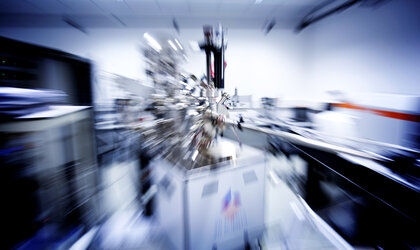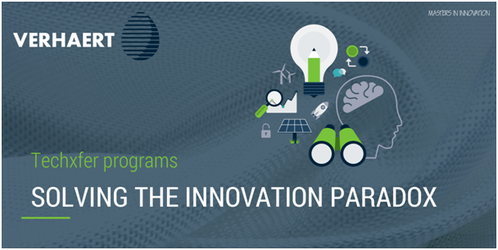Tackling toxic soil and antibiotics with partial gravity
Antibiotic resistance is one of the major challenges to the long-term survival of humans on the Earth. Now research into growing plants at future human habitats on Mars could help resolve this looming problem.
Both are in the sights of Dennis Claessen, associate professor at the Institute of Biology at Leiden University, following experiments with a tool called the Random Positioning Machine (RPM) from the space company Airbus, which was developed for ESA to simulate zero or partial gravity on Earth.
“The RPM machines offer a great alternative to organisations looking to do experiments in zero and partial gravity,” says Derk Schneemann at Verhaert Netherlands, the Dutch broker in the network of ESA Innovation Partners that facilitates the re-use of space technology in other sectors and which is part of ESA’s Business Applications and Space Solutions Programme.
Bacteria stressed by partial gravity produce antibiotics

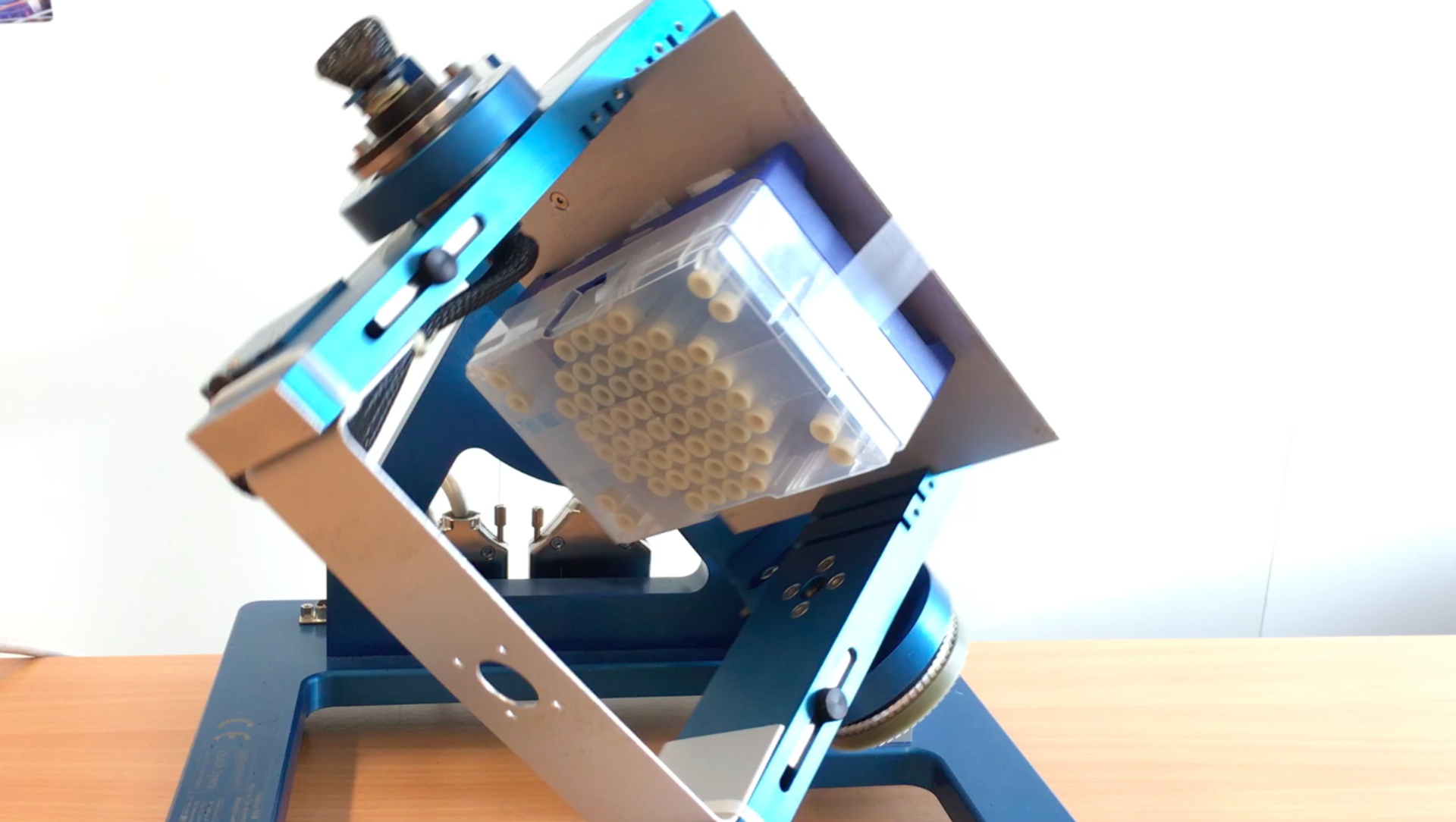
Access the video
Claessen works in synthetic biology, in which bacteria are engineered to solve problems that cannot be tackled – or are not tackled well – by ‘wild’ bacteria.
Every year, students are encouraged to push the boundaries of synthetic biology in the global iGEM competition.
Three years ago, Claessen’s team chose to enter iGEM with a solution to the problem of growing non-toxic plants on Mars.

“The soil on Mars has perchlorate in it, which can be toxic for humans,” explains Claessen.
“Our students started ‘building’ a bacterium that would degrade the perchlorate to chlorine and oxygen, but they needed to know whether that bacterium would behave the same way in the partial gravity of Mars as it would on Earth.
“Airbus’s RPM was the perfect tool to let them investigate this vital factor.
“During their experiments they noticed that when bacteria grew in partial gravity, they became stressed as they accumulated waste around them that they couldn’t get rid of.
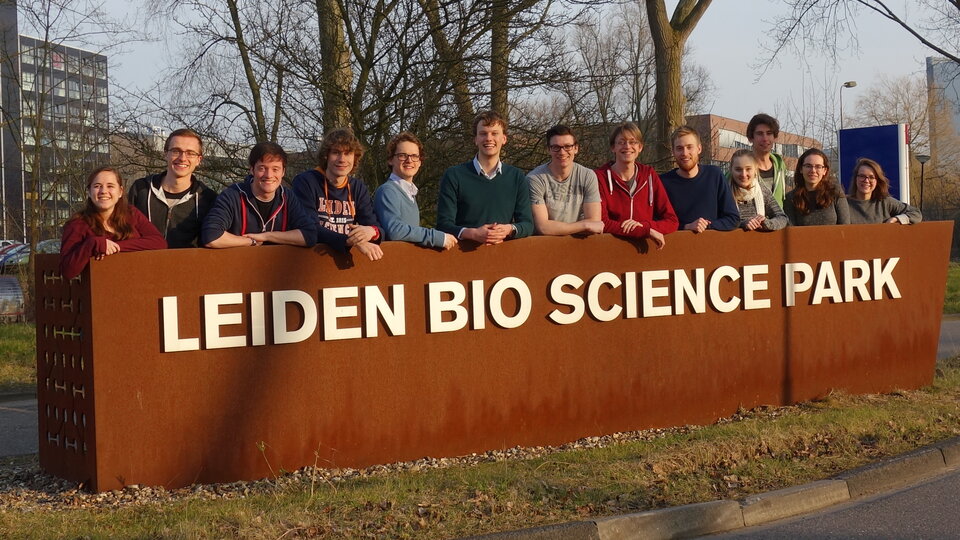
“This holds great potential because when microbes belonging to the Streptomyces family become stressed, they usually start making antibiotics.
“Seventy percent of all the antibiotics humans use are derived from Streptomyces bacteria and we know they have the potential to produce even more."
Claessen emphasises that, "using the RPM to stress them in new ways may help us to find ones we’ve never seen before.”
Simulating low gravity saves time and money
The first recorded experiment on living systems using machines to manipulate gravity was done in 1806 using a rotating waterwheel.
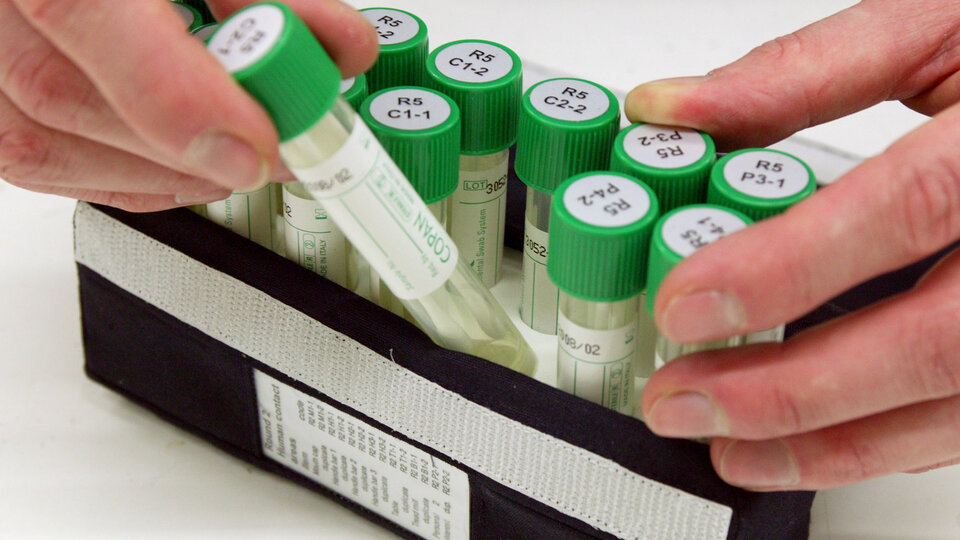
Two hundred years later the RPM, designed by the Dutch Airbus team for ESA, is the latest instrument developed to experiment in zero or reduced gravity without going into space.
The RPM rotates any enclosed experiment ‘randomly’ to minimise the influence of Earth’s gravity, thereby simulating what would be experienced in space. The original models could successfully simulate zero gravity (typically referred to as microgravity).
The newer RPM 2.0 can additionally simulate partial gravity, which is between 0g and 1g.
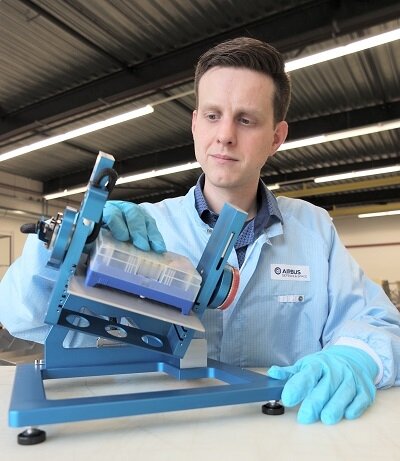
“This lets us replicate the circumstances of Mars, which has around one-third of the Earth’s gravity [37.5%], or of the Moon where it is around one-sixth [16.6%], or even of some of Jupiter’s moons,” says Matthijs van der Kooij from Airbus office in Leiden.
It has already been used to test experiments before they incur the time and costs involved in being put into space, for example on the International Space Station.
“Many organisms behave very differently at zero and partial gravity. RPM 2.0 lets us better understand how an organism behaves in different environments,” explains van der Kooij.
Detoxifying soil on Mars and Earth
Claessen is now building a Dutch consortium to investigate soil detoxification on a larger scale. This will have applications on Earth.
For example, there is a lot of perchlorate in Chile’s Atacama Desert, where the soil is believed to resemble that on Mars. Historically, Atacama soil was harvested for fertiliser and used across America, but later it was found that perchlorate - a primary component of rocket fuel - had been washed from it into groundwater used for drinking.
High doses of perchlorate can inhibit the thyroid gland’s uptake of iodine and interfere with foetal development.
Once the Dutch team is in place and has funding, research into Streptomyces microbes (which are naturally found in Earth’s soil, where they play a vital role in breaking down organic matter) and antibiotics could also be done with the RPM.
“To find that they hold the potential for discovering new antibiotics as well is even more exciting, as antibiotic resistance is something we need to tackle urgently,” adds Derk Schneemann.
About ESA’s Business Applications and Space Solutions
ESA’s Business Applications and Space Solutions programme has a network of 20 ESA Business Incubation Centres, 15 ESA Innovation Partners and 14 ESA Ambassadors throughout Europe. It co-funds projects and start-ups, while also offering technical and business support to companies that seek to deliver rapid innovation and to raise private investment.
Overall ESA spends €400 million a year on strengthening the competitiveness of European and Canadian companies in the global markets for both satellite communications and downstream applications.
The 20 ESA Business Incubation Centres (ESA BICs) form the largest ecosystem in the world for space-related entrepreneurship and have fostered over 700 start-ups throughout Europe. Spread across some 60 cities in 17 countries, more than 300 start-ups are currently under the two-year business incubation development booster programme, with another 180 joining yearly.




